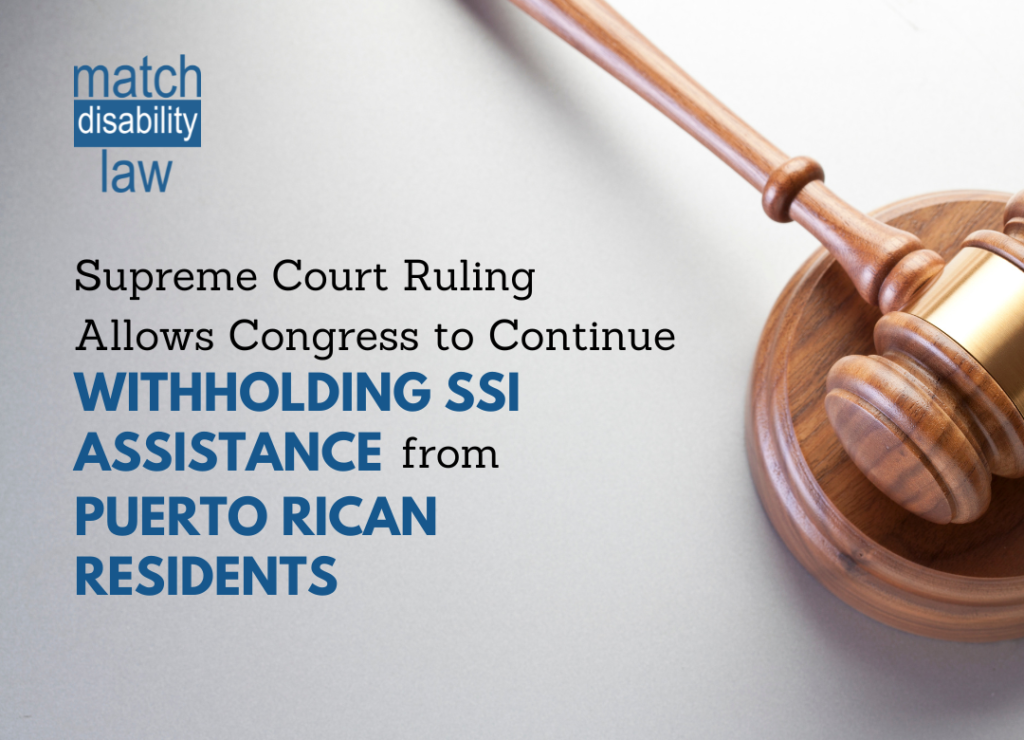For many people with disabilities who also have very low incomes, Supplemental Security
Income (SSI) provides them with critical financial support.
Orchestrated by the Social Security Administration, the program provides monthly payments to Americans who are disabled, blind,or at least 65-years-old. These payments allow them to help cover their living costs.
While eligibility requirements for SSI may seem fairly straightforward, the term “American” has
always excluded U.S. citizens who live in all but one of the U.S. territories. In understanding
Social Security Income, the Social Security Administration explains that those receiving SSI benefits must “reside in one of the 50 states, the District of Columbia or the Northern Mariana Islands.”
Interestingly, people of the Northern Mariana Islands have access to SSI, while those living in Puerto Rico, the U.S. Virgin Islands, and Guam—all of whom are also U.S. citizens—do not.
On April 21, 2022, the U.S. Supreme Court made clear that there is no constitutional obligation
to open the program to all U.S. citizens.
Case Study
In their 8-1 ruling in United States v. Vaello Madero, the court rejected the argument that denying SSI benefits to Puerto Ricans violates the constitution’s requirement of equal protection under the law.
For Jose Luis Vaello Madero, the ruling means that a benefit, for which he qualified and
received while he lived in the contiguous United States, is no longer available to him, simply
because he moved back to Puerto Rico. The Supreme Court made clear that the only way his
situation can change is if Congress votes to extend the SSI program to Puerto Ricans and
residents of other U.S. territories.


